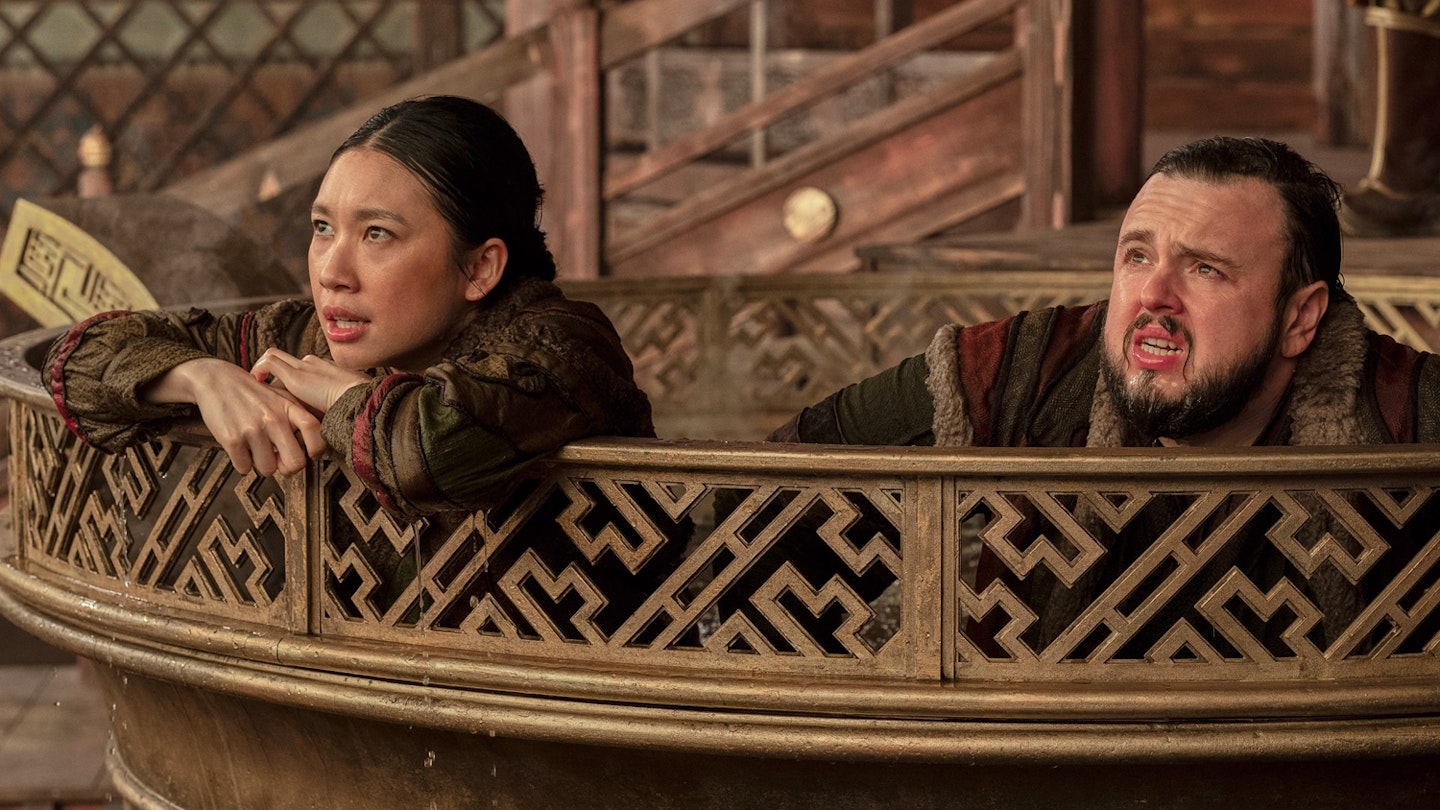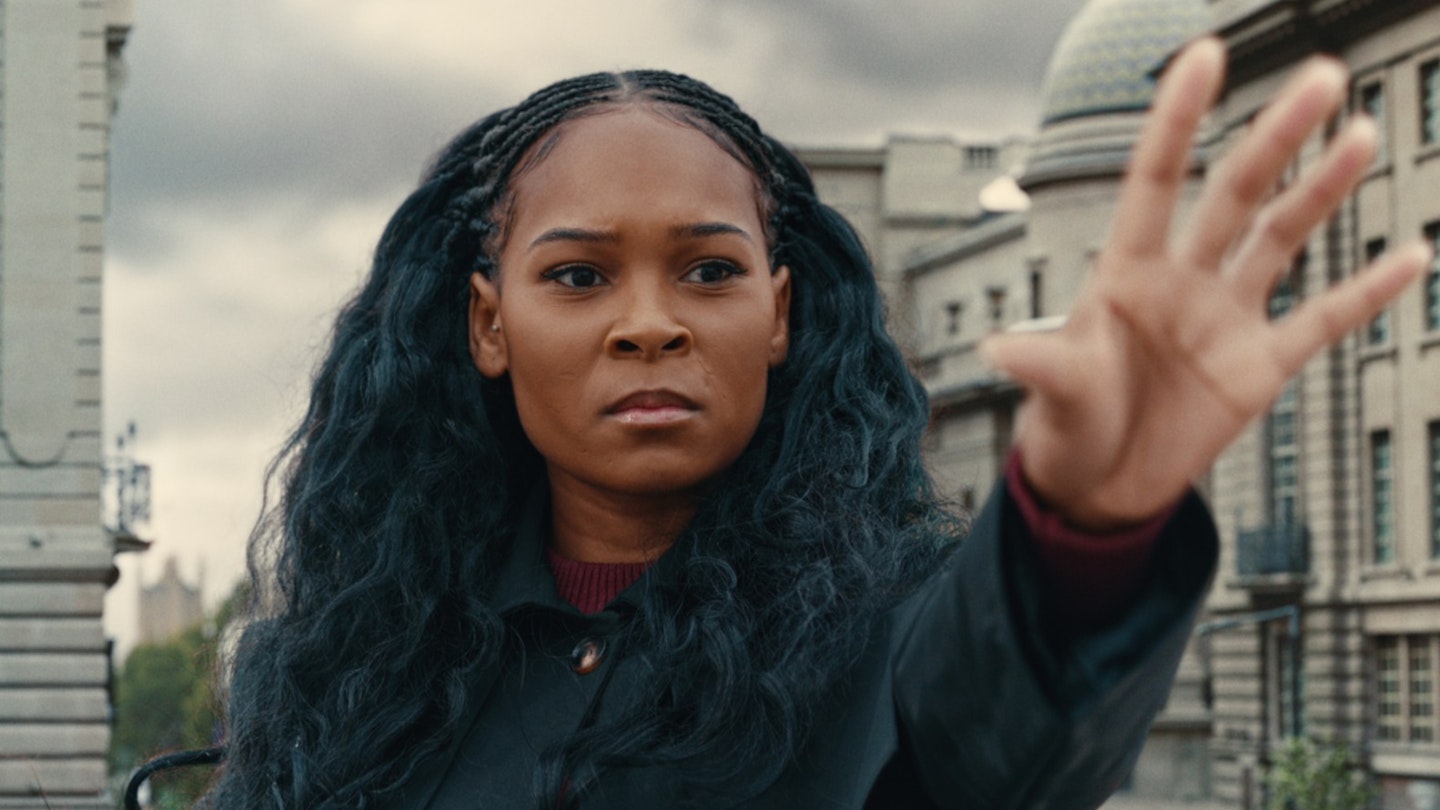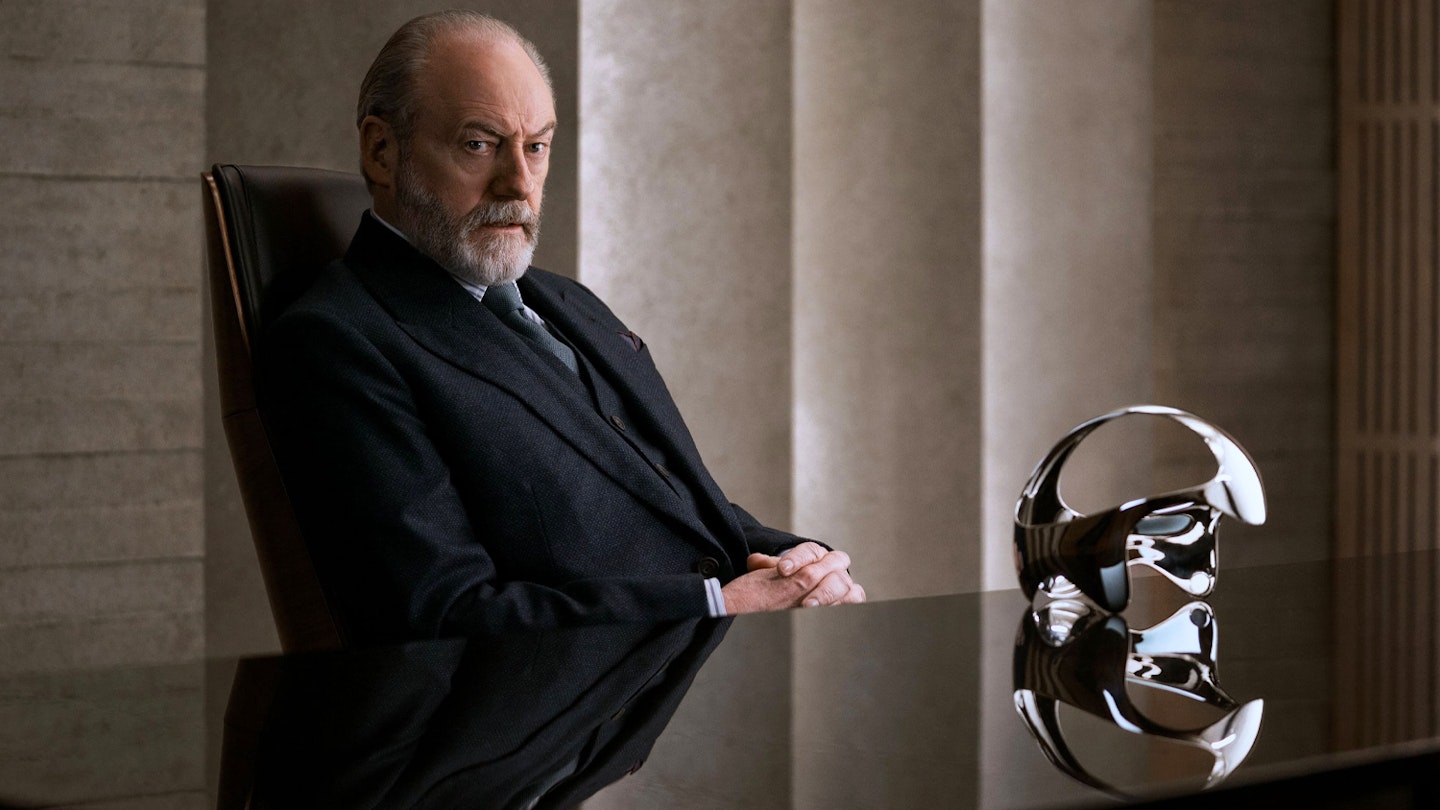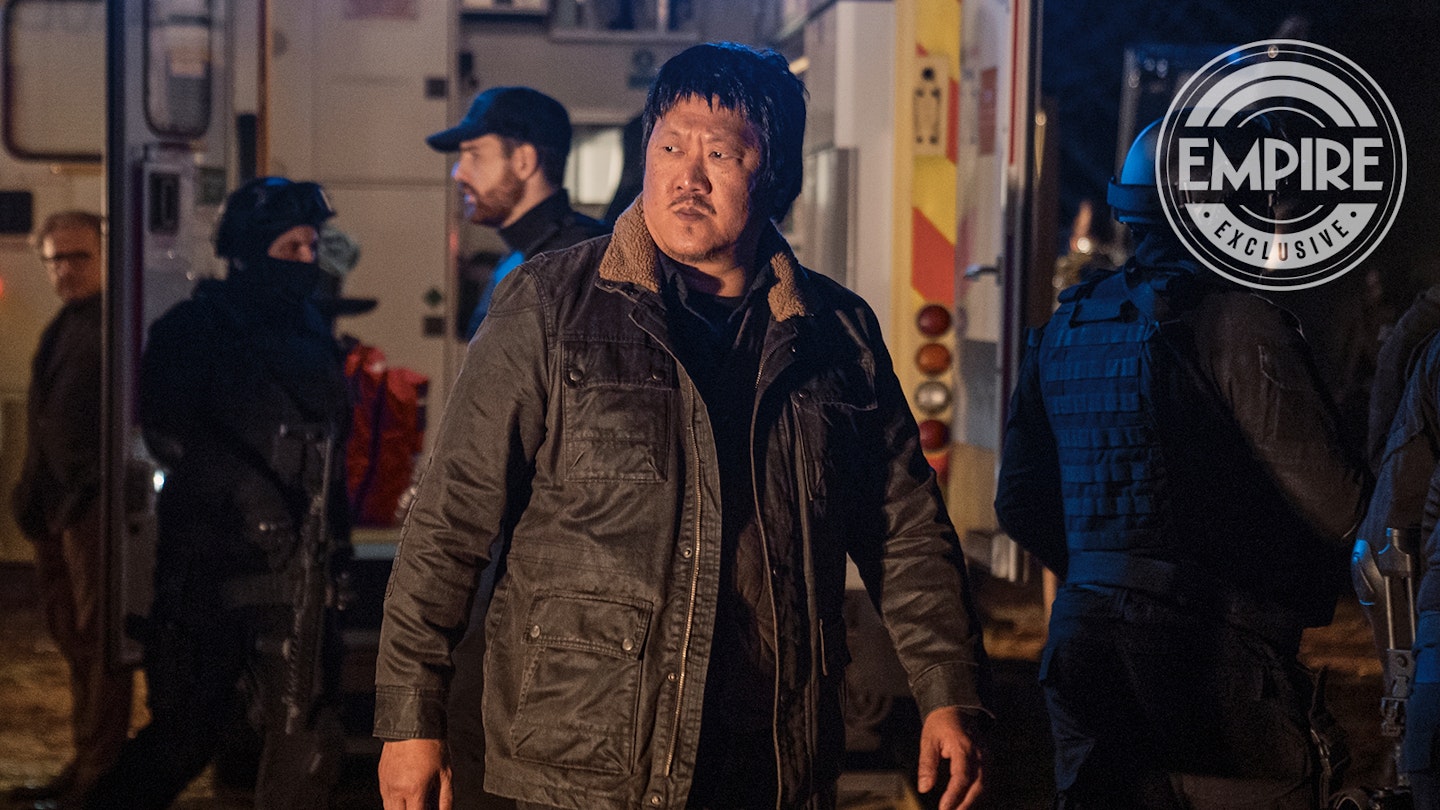In physics, the ‘three-body problem’ is what you’d call a real head-scratcher: a scientific conundrum to do with the positions and velocities of three bodies of mass when they attract each other with gravity. It is a centuries-old question of chaos theory; a mathematical riddle, seemingly unsolvable. And only slightly trickier than adapting Liu Cixin’s 2008 novel, The Three-Body Problem, for the small screen. The book (and its subsequent sequels) spans from history to the heat death of the universe; includes dense talk of theoretical astrophysics; and is set, at one point, in the tenth dimension. How, exactly, do you make a television show out of that?
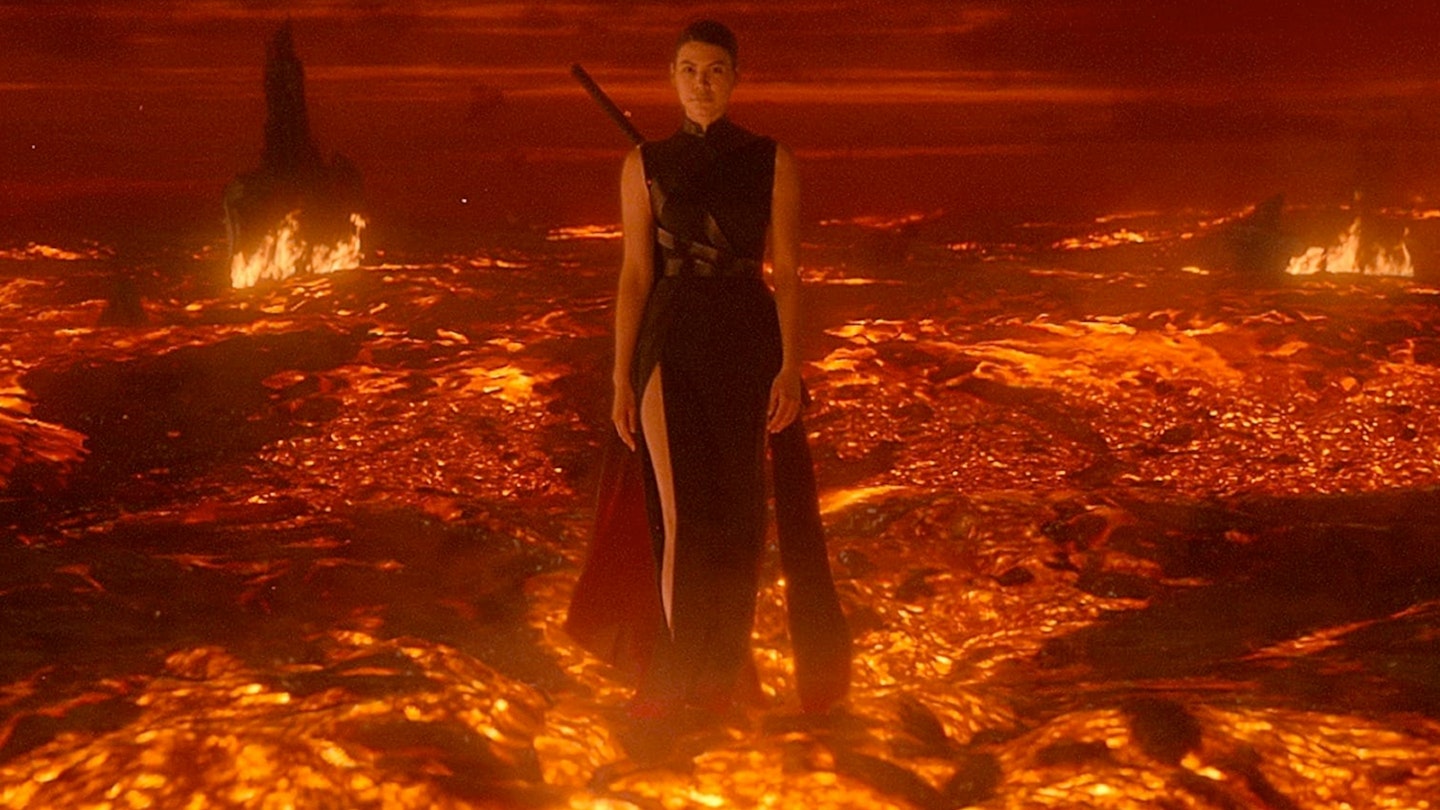
“Ambitious” doesn’t quite cut it, which perhaps makes Game Of Thrones showrunners David Benioff and D.B. Weiss, alongside True Blood’s Alexander Woo, the ideal stewards for Netflix’s massive, multi-million-dollar punt. The three creators are experienced with giant budgets; they know their way around a jaw-dropping set-piece; they can wrestle with sprawling, unwieldy source material; they can world-build; they can character-build. To borrow a phrase, they consider chaos a ladder. (After the decidedly mixed response to the final season of Game Of Thrones, Benioff and Weiss also, arguably, have something to prove.)
In many ways, this is a remarkable shift from Thrones or Blood. There is so much packed into these eight episodes, so many tones and styles and genres. It is part police-procedural potboiler, part historical-fiction epic, part puzzle-box mystery, part scientific-discovery adventure, part alien-invasion sci-fi. It begins with a series of scientists’ deaths, seemingly connected, being investigated by laconic, Raymond Chandler-esque detective Da Shi (brilliantly refashioned as a sweary Mancunian by Benedict Wong); it ends with the dawn of an intergalactic war. That it feels coherent at all is an achievement. At its heart lies the question of what it means to be human.
The result is more accessible than the book — you don’t need a PhD to understand or enjoy this show.
The grounding of that question is one of the showrunners’ biggest contributions. Liu’s book was more enamoured with its concepts than its characters; this adaptation streamlines, combines or invents five major characters — played by Jess Hong, Jovan Adepo, Eiza González, John Bradley and Alex Sharp — to be all from the same Oxford graduating class. As long as you accept the slightly convenient neatness of that choice, they’re strong audience surrogates, lending a human sense of incredulity to it all. (“That is about the 28th-weirdest thing to happen to me this week,” says Hong’s Jin Cheng at one point.) Some of the relationships feel a bit trite — a love triangle seems unnecessarily soapy and small-fry — but there are moments of real pathos. Hong and Sharp emerge as the MVPs, both delivering warm, gorgeously pitched performances, full of humour and humility.
The result is something more accessible than the book — you don’t need a PhD to understand or enjoy this show — even as it centres incredibly smart people trading in high-concept problem-solving while playing on alien Apple Vision Pros. Yet Liu’s most important themes can still be found. This is an English-language, international adaptation of a Chinese book, but it retains its social and historical allegories: the show, like the book, opens with the violence of China’s Cultural Revolution, and we are invited to draw comparisons between human and alien power structures — the spectre of an oppressive regime, the terrifying deference to a cult of personality, the forging of a new world at whatever cost.
It doesn’t skimp on the book’s wow factor, either. There is a colossal sense of scale and pace throughout. Episode 5, in particular, has a sequence which rivals the Red Wedding for its violence and gore. This initial season follows a familiar Thrones-ian pattern, frontloading its big moments while ending things on a more reflective note.
Almost disappointingly, that finale feels more muted, offering some answers but far more questions, laying groundwork for currently unconfirmed future seasons. There is huge potential here. If they pull it off, this could be one of the great science-fiction television shows of all time. But they need to land the plane first. Netflix, we beg you: don’t leave us hanging. Don’t make this just another unsolvable problem.
